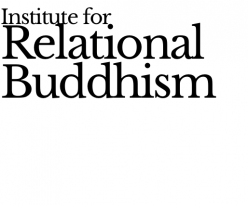Confluencing Pan-Buddhist Teachings (Congruent with the Major Denominations), Social Construction-ing, Clinical Psychology, Psychotherapy (by Karma Transformation), and Lifestyle/Career/Leadership Coaching.
Relational Buddhism is a psychological approach to the Pan-Buddhist teachings (as basically acknowledged by the majority of Buddhists around the world) which views relationships, interpersonal (with others) and intrapersonal (with oneself), as the centerpiece of its daily practice.
This practice grows naturally from the awareness that human separateness is an illusion, or a delusion at worst, and that sane living requires speech and wording which express loving-kindness, empathic compassion, shared joy, and relational equanimity.
Awareness and attention combined are the key ingredients for pristine mindfulness, a meditation which starts by looking inside, only to discover that whatever is observed as perception or thought has been socially constructed before.
Relational Buddhism embraces a New Buddhist Psychology (defined as an integrated social-clinical-neuro-psychology of body/speech/mind) in the framework of Social Construction, a meta-vision discarding ‘Transcendental Truths’.
Viewing mind located in-between people, Relational Buddhism marks a major move beyond brain by realizing a paradigm shift away from religion towards involving psychology as an efficient vehicle for disseminating the Dharma in the 21st century.
The Buddha’s pivotal insight is that the human predicament of suffering is relational and rooted in these “3-Poisons”: greed, hatred, and ignorance, i.e. regarding the illusion of self or soul and the delusion on the existence of god(s).
While greed conceals anxiety/fear of tomorrow’s loss and sadness/grief regarding yesterday’s loss, hatred hides anger and aggression toward others which finally result in clinical depression by self-blame/pity, remorse and guilt.
The Buddha’s understanding of human affect and suffering is still actual today as intra/interpersonal imbalances have debouched globally in socioeconomic/financial crises (greed) and in geopolitical conflict/terrorism (hatred).
NB: Karma Transformation refers to the centerpiece of Buddhist Psychology/Psychotherapy/Coaching which aims at changing intentional action, thus at our thoughts/cognitions and performances/behaviours from the unwholesome/irrational onto the wholesome/rational.
Karmic transformation of body-mind/speech implies a choice and has little to do with a book-keeping of good and bad deeds. This is realized by the practice of Self-Transformation by Buddhist Meditations and Implemented-Transformation (Buddhist Psychotherapy and Life-style Coaching).
